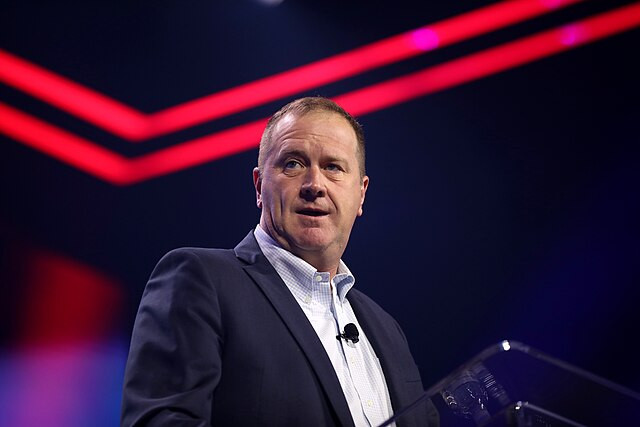A lively debate over the H-1B visa program is intensifying in Washington, spurred by both high-profile tech entrepreneurs and contrasting voices within the Republican Party. Sen. Eric Schmitt (R., Mo.) has emerged as one of the more vocal critics, arguing that American workers have been "left behind" while companies allegedly exploit foreign labor to cut costs.
During an appearance on Fox News Sunday with Shannon Bream, Sen. Schmitt addressed concerns that the H-1B program, initially designed to attract top-tier international talent, is often used to undercut domestic wages. "I think there's an important, thoughtful debate that's happening," he said. "But the context that we need to, I think, keep in mind here is that American workers have been left behind by this economy."
In Schmitt's view, the problem is not only offshoring factory jobs but also replacing skilled white-collar workers with lower-paid foreign hires. "I think the abuses of the H-1B program have been evident, where you have sort of the sons and daughters of those factory workers who lost their jobs, got white collar jobs as accountants, and they're, you know, training their replacements, the foreign workers who are undercutting their wages," he continued.
The senator's remarks clash with influential figures like Elon Musk, who last week urged Republican lawmakers to consider raising caps on H-1B visas. Musk has called for a more open system, even lashing out online amid criticism from some in the conservative base. "Take a big step back and F--K YOURSELF in the face," Musk wrote on X Friday. "I will go to war on this issue the likes of which you cannot possibly understand."
Fueling the internal GOP feud, entrepreneur Vivek Ramaswamy, who has aligned with Musk in pressing for expanded skilled immigration, has come under fire as well. Several prominent conservative voices, including activist Laura Loomer, argue that pushing more high-skilled visas merely substitutes one labor crisis for another by keeping wages low and allowing American workers to be displaced.
Schmitt draws a hard line on the current system's pitfalls: "So I think the solution here President Trump has actually articulated in 2020 is to reform that system and, you know, get rid of the abuses, make it merit-based and make sure that we're not undercutting wages and having, you know, Americans train their foreign replacements." He maintains that U.S. laws, as written, already offer enforcement pathways to remove undocumented immigrants. "The idea of deporting people who are here illegally is not a new concept. In fact, the policy in the law of the United States of America, since, you know, for 200 years, is if you come here illegally, you are detained. If you don't have a valid reason, like asylum. And by the way, nine out of ten asylum claims are bogus. Then you are deported," Schmitt said.
Throughout the debate, tech leaders have stood by the position that more liberalized visa policies will benefit American economic growth. Among them is Rep. Ro Khanna (D., Calif.), who backs H-1B reform but insists there must be safeguards against underpayment and abuse. "You can't underpay these H-1B folks coming in," he told Fox News Sunday. The program "shouldn't be for accountants or entry-level IT jobs. It should really be for exceptional talent. We should have that balance."
Proponents of expanded skilled immigration see the H-1B program as an essential tool for the U.S. to attract world-class innovators. "One of the points that I think Elon and others are making is what makes America as exceptional is that we are a magnet for the world's talent," Khanna said in the same interview. "It's great that Elon Musk comes here. It's great that Jensen [Huang], who started NVIDIA, is doing it here and not in Taiwan."
Yet, critics on both sides of the aisle remain wary. Some accuse companies of exploiting the visa system to bring in cheap labor instead of genuinely recruiting rare talent. Others emphasize the plight of foreign workers themselves, who can be locked into a single job under H-1B sponsorship, leaving them vulnerable to exploitative practices and stalled career progress.
Sen. Schmitt cites these disparities to argue that the country should invest more in domestic education and workforce development, while still granting visas only to those with truly specialized skills. He says the current system too often leads to a scenario in which "qualified Americans [are] being denied a lot of these jobs because a company can go out and hire cheaper labor from a foreign country."
Meanwhile, former President Trump's administration had attempted to tighten H-1B eligibility rules and require companies to offer higher wages to visa recipients, moves that drew praise from labor advocates and ire from tech lobbyists. Trump also temporarily froze the program at the height of the pandemic, a decision widely criticized by Silicon Valley.






